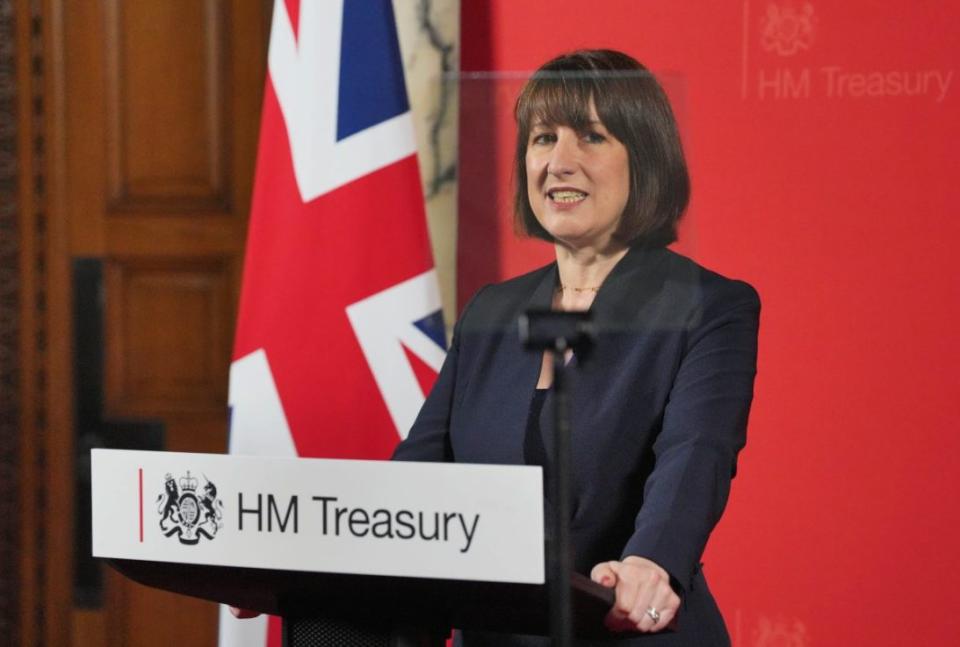Build, Baby, Build: Rachel Reeves has shown she’s serious about growth

In announcing a suite of planning reforms in her first speech as Chancellor, Rachel Reeves has addressed the biggest barrier to growth in Britain today, says Iain Mansfield
The new Chancellor is serious about growth.
By putting planning front and centre of her first speech, Rachel Reeves addressed the single biggest obstacle to economic growth in the UK today. As Policy Exchange demonstrated in Homes for Growth, increasing house building by 100,000 homes a year could add £17.7bn to the UK economy. Yesterday, the Chancellor laid out not just ambitions, but a series of tangible actions to reform the planning system, including reintroducing housing targets on local authorities, building on the ‘grey belt’ and supporting local authorities with 300 new planning officers.
Reeves’s ambitions extend beyond housing to energy and to data infrastructure. And rightly so: the UK’s turgid planning regime weighs heavily not only on the construction sector but on the economy as a whole, increasing energy prices, weakening business investment and crippling our ambitions for science and AI. Why invest somewhere when you can’t build?
There can be no money without growth. No growth without building. No building without planning reform.
Beyond the words, it was noteworthy that the speech was accompanied by immediate action. The government has called in two previously rejected planning applications for data centres – one presumes with a view to allowing them to go forward. And in just a few strokes of a pen, the government has shredded the previous regime’s effective ban on onshore wind, in what is potentially the first steps towards a strategy of energy abundance.
Just imagine, if you will, how this would have taken place under Whitehall’s preferred modus operandi. A green paper, a white paper, maybe a technical consultation or two, much agonising over the views of ‘stakeholders’ and then – a year or two later – some carefully nuanced tweaks to the regulations that shifted the status quo by a few percent. The Chancellor’s speech was a rejection of incrementalism in favour of action.
Something is about to happen that has not happened for a long time. The government is going to wake up and find out that it is strong.
Beyond planning reform, the emphasis on macro-economic stability and fiscal responsibility was rightly designed to reassure the bond markets. And her commitment to reform the pensions system “to drive investment in homegrown businesses and deliver greater returns to pension savers” echoes recommendations in Policy Exchange’s report, Unleashing Capital, and is a welcome recognition of the financial sector’s fundamental importance in driving growth.
None of this will be easy. Reeves referred to difficult choices three times, and to vested interests twice. She will encounter them both in abundance – and she will need both steely resolution and absolute clarity of purpose to overcome them.
She will have to overcome obstacles, also, within the Labour Party. How far is Reeves’ laser-like focus on growth shared across her back benches? Will the Labour MPs who have recently triumphed in the leafy shires share her enthusiasm for concreting over the green belt? Even amongst her Cabinet colleagues, how will Angela Rayner’s ambitions to extend workers’ rights, strengthen union power and introduce collective sectoral bargaining – the last of which Policy Exchange calculated could add up to £225 a year on average to council tax if rolled out for social care alone – contribute to the Chancellor’s plan for growth?
But overall, there is cause for optimism. This was a serious speech that targeted the most significant obstacles to growth in Britain today – alongside a clear plan of action for how they could be overcome. The Chancellor has set herself the right mission: now she must deliver upon it.
Iain Mansfield is director of research at Policy Exchange

 Yahoo Finance
Yahoo Finance 